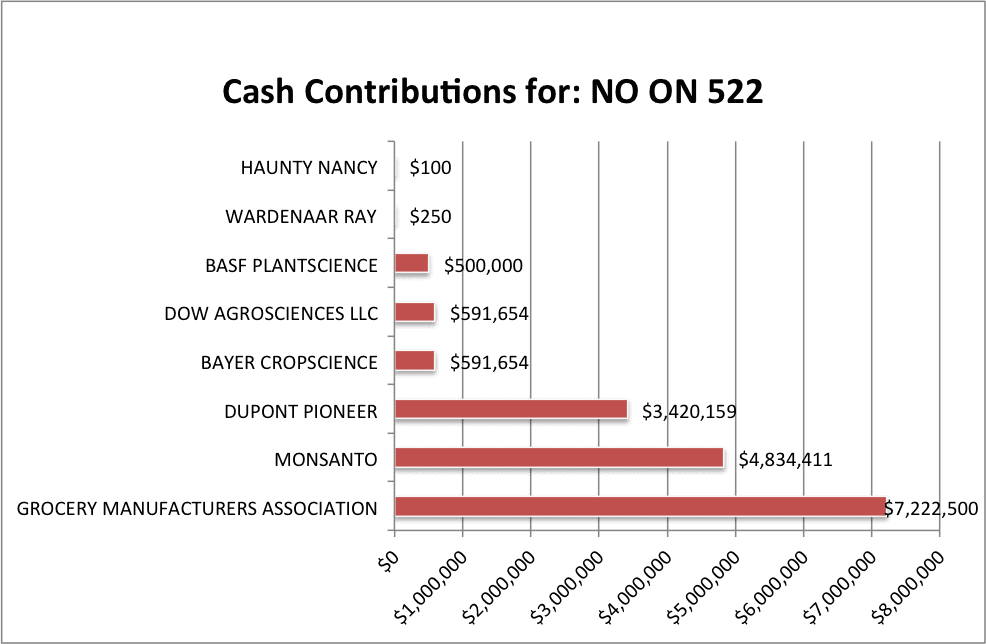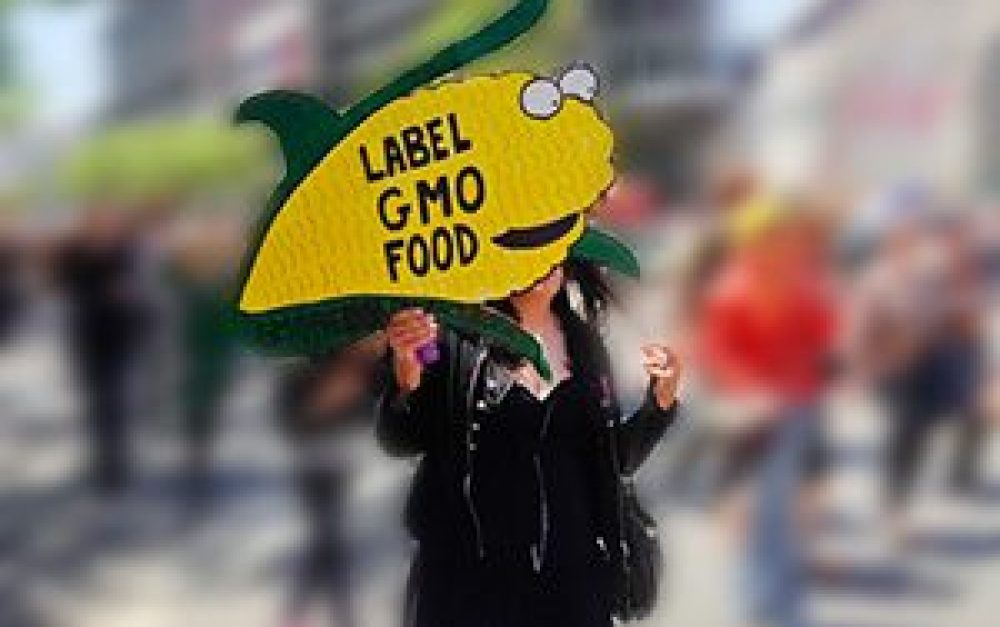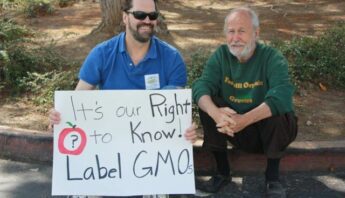10 million dollars. That’s what Monsanto and other pesticide corporations have spent so far to defeat a ballot initiative in Washington State to label genetically engineered (GE) food. In a replay of what took place in California last year, a handful of companies is trying to confuse the issue so people vote against our right to know. But the money trail — and corporate spin tactics — are very clear.
To date, more than half of the funds spent to defeat I-522 have come from pesticide and biotech corporations, with Monsanto making the largest contribution of $4.8 million. Why are these corporations so invested in defeating GE labeling initiatives? Likely because they fear losing marketshare for their GE, pesticide-resistant corn and soy.
Pesticide and genetically engineered seed companies are increasingly one and the same. As I highlighted in a recent post, just six companies control a majority of the commercial seed market and a majority of global pesticide sales. The "Big 6" marketshare grows as they develop new GE seeds and complimentary pesticide products —driving up use of these increasingly harmful pesticides.
More than 60 other countries have passed laws that require labeling of genetically engineered foods. And in the U.S., Washingtonians are on the frontline of the issue, working to ensure they know what's in their food and how it’s grown. Farmworkers, farmers and nurses agree — that’s part of what GE labeling helps do. It allows families to choose the food and farming system they want to support.

Source: Public Disclosure Commission – Cash Contributions for: NO ON 522
Hopefully, Washington state won’t be a replay of California’s narrowly defeated Proposition 37. The "Yes on I-522" campaign and partners are working hard to cut through the scare tactics and misinformation and make sure voters have the facts. Contrary to what opponents claim, we know that labeling GE foods won’t make groceries more expensive. Instead, it will simply gives shoppers more information and more choices.
Washington isn’t the only place these issues are at play. About half of U.S. states have introduced legislation or considered efforts to label GE foods, and two states — Connecticut and Maine — passed laws that will go into effect once surrounding states are on board. And others are growing public awareness about pesticide use and its links to GE crops.
Even though most Americans say they have a right to know what's in our food — more than 90% — the Big 6 will undoubtedly continue investing in defeating initiatives like I-522 and creating campaigns of confusion.
Money trail goes local
Beyond GE labeling, the Big 6 are heavily invested in protecting (and expanding) their seed and pesticide marketshare on many fronts. On the island of Kaua'i, where many of the Big 6 operate open-air test fields for GE crops, local residents are working to pass a county bill that would protect communities from the pesticides applied to test fields. But the Big 6 are pushing back — hard.
Their latest move? To get the governor of Hawai'i involved. It looks like Big 6 interests have persuaded Gov. Neil Abercrombie to step in and stall the passing of Kauai's pesticide protection legislation, Bill 2941. The Governor has a long history of campaign contributions and collaboration with the Big 6 representatives, including Monsanto. In addition, Kaua'i Mayor Bernard Carvalho, who tried to derail the County Council vote last week, has also received contributions from Syngenta, the world’s largest pesticide corporation.
Monsanto & Co. are also attempting to pre-empt posible restrictions on their products in Oregon. As part of a package of special session bills, the Big 6 companies snuck in state legislation that would prohibit counties from prohibiting the growth of GE crops in Oregon, which the Governor then signed into law. Not surprisingly, Syngenta and Monsanto led the way giving $11,000 collectively in the last month alone to the blandly named FirstVote PAC, a pesticide industry front group lobbying for the bill.
You’ve heard it before, but it bears repeating: follow the money. The Big 6 pesticide and GE seed companies will continue to withhold information from the public and stop citizens — working with their local governments — from passing laws that give us more information and control over our food and farming system.
Take action » A win for GE labeling in Washington will pave the way for GE labeling across the country — and build momentum to get us off the GE/pesticide treadmill. Help pass I-522 by reaching out to Washington voters and ensuring they have the facts!








